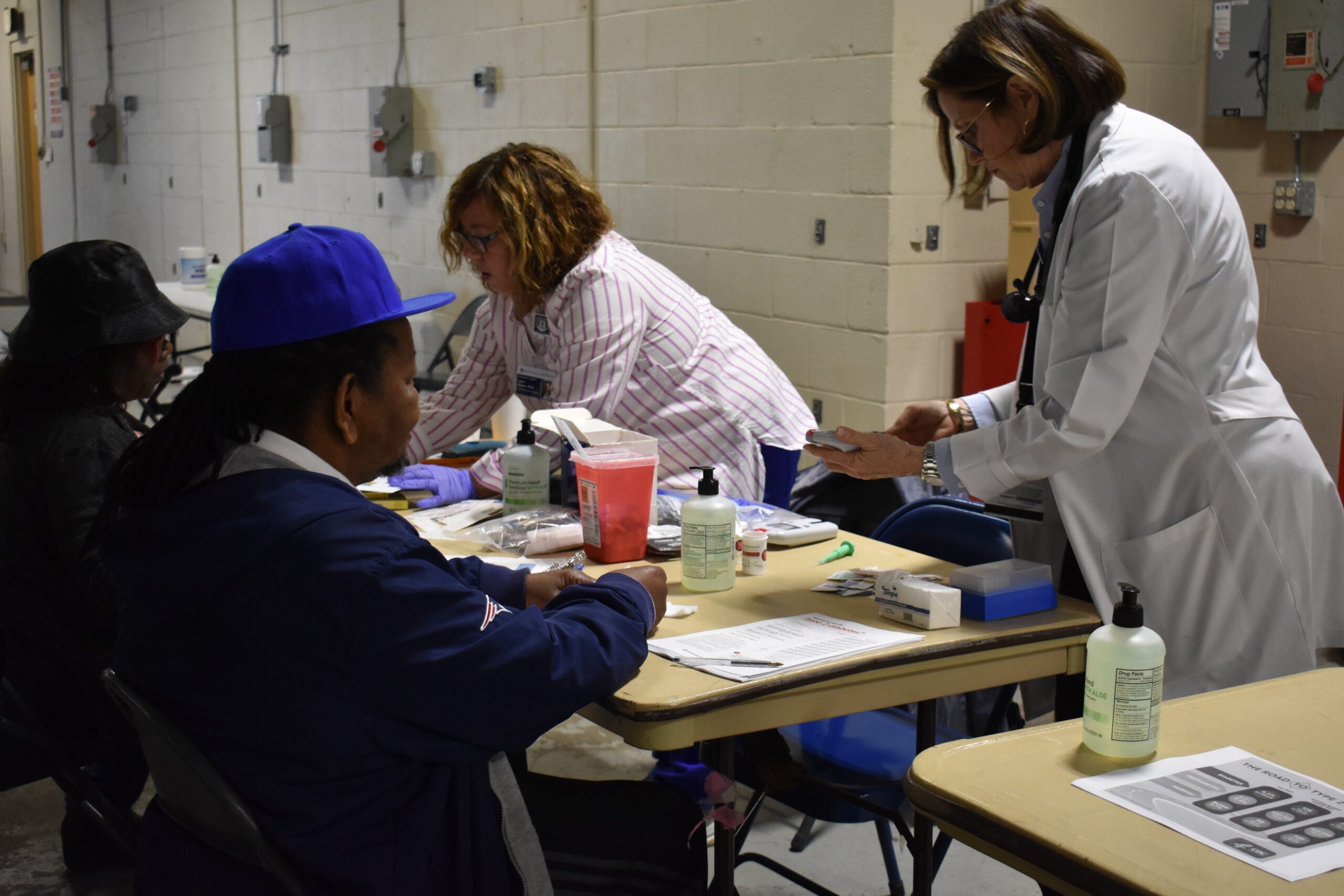On Wednesday and Thursday, March 27 and 28, Augusta University’s College of Nursing hosted a health clinic for those a part of their Healthy Grandparents Program.
First established in January of 1999 by AU’s College of Nursing and grant funded, the Healthy Grandparents Program provides physical, emotional and social support to grandparents and great-grandparents raising their grandchildren living in parent-absent homes.
The primary goal of the program is to help provide their grandchildren with a stable and supportive home environment without having to enter or re-enter the formal foster care system, and provide a variety of support services to grandparent caregivers.
While children were in school, with the help of several enrolled health-focused AU students and faculty, the two-day clinic provided health information, screenings, exams, teaching sessions and individual consultations for enrolled members of the program.
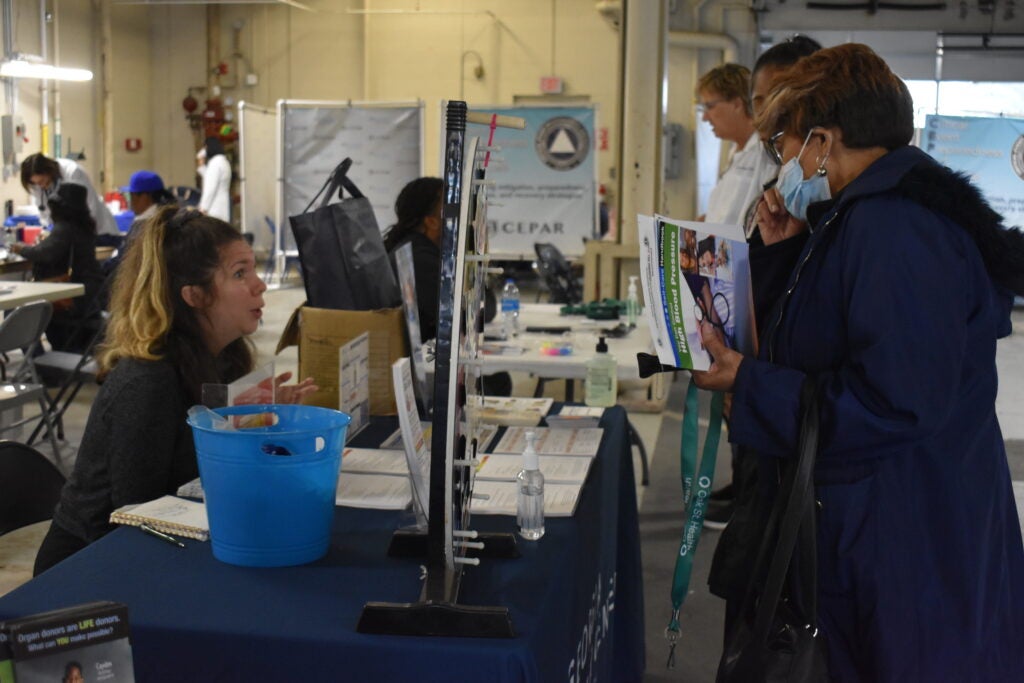
Pamela Cromer, a lead health clinic organizer and a professor at the College of Nursing, said the event allowed them to educate grandparents on possible health issues, while giving students the opportunity to gain real-world experience by administering an annual wellness exam.
“This is the first… geriatic-focused health clinic where we are actually fully focusing on the grandparents,” she said. “… these students are also needing to learn about the annual wellness exam that is offered by Medicare, and I’m not real sure that the grandparents themselves are aware of the program.”
Identifying mainly hypertension issues on most attending grandparents, Cromer said the clinic more importantly provided students a chance to engage with their community, while warning older adults about the dangers of abusing their own health.
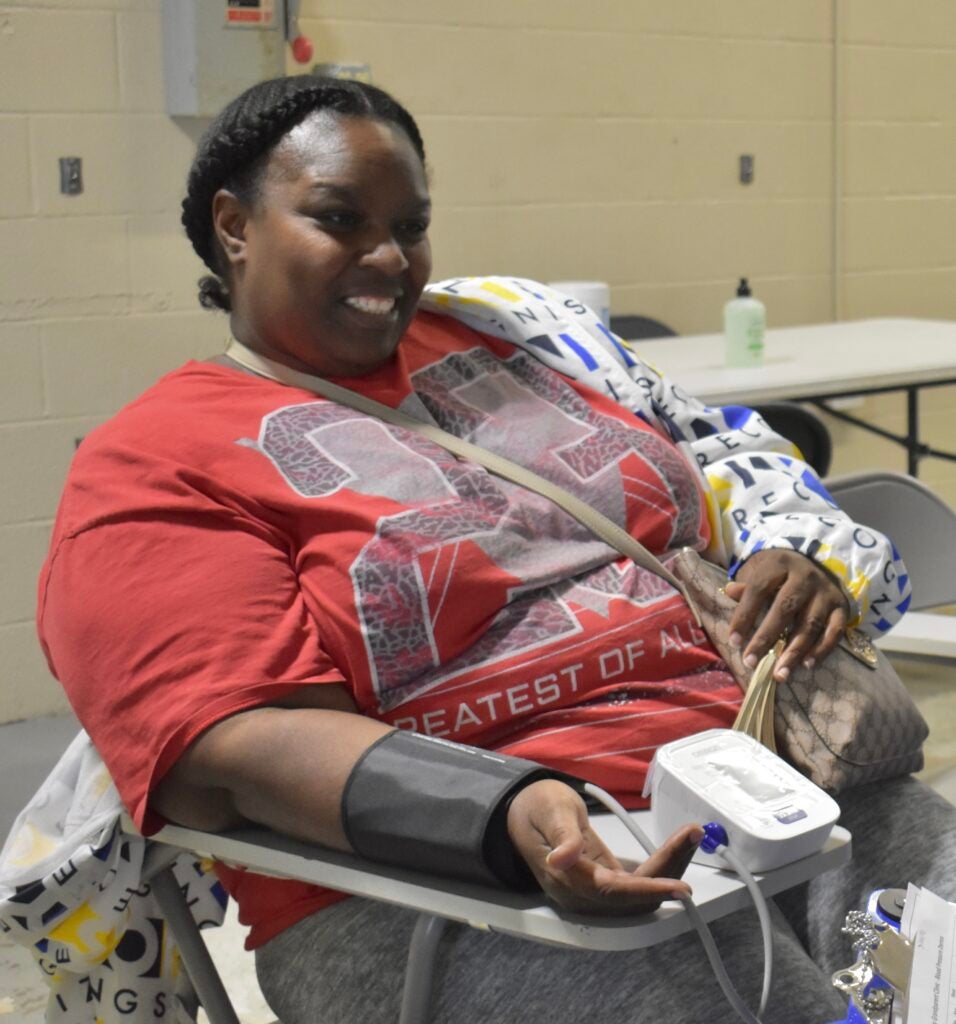
“This is extremely important. This is the longest running community outreach program at the university,” she said. “We have our geriatric population that is booming right now, and [grandparents] need to learn how often they should be getting screened for colonoscopies, mammograms, flu, pneumonia – for all those things.”
After 25 years, Cromer said she and the dedicated program coordinator for the Healthy Grandparents Program, Mike Patton, realized how most of the services have been geared more towards the grandchildren.
“We’ve realized that the grandparents are also so focused on the children, and they often neglect their own physical and mental health needs,” she said. “So, we thought this would be a good way to have them take better care of themselves, learn what their health status is, and encourage them to get the services that they need.”
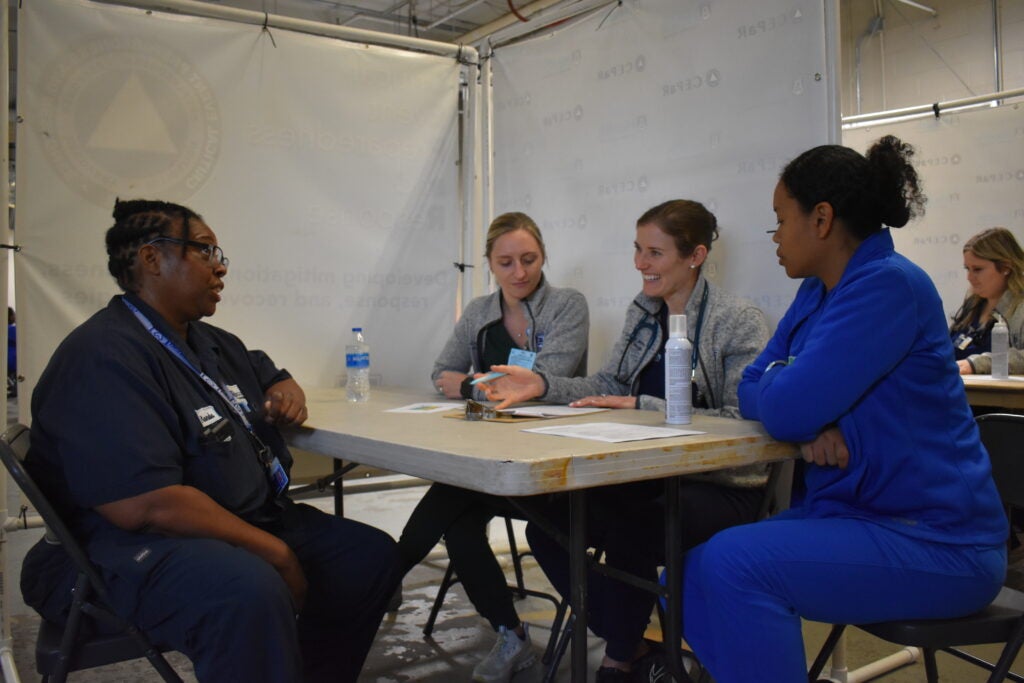
By handing out calendars with reminder dates that clearly list out when grandparents are due for a screening of a certain area/health concern or preventative services, Cromer and Patton both said they hope each attending program member leaves the event understanding why their own individual health is significant.
“We’re expecting it to be a very positive and popular experience for them,” Cromer said. “We’re just trying to get them to understand that if they stay healthy, the better they’re able to take care of their grandchildren.”
Patton, who has been involved with the Healthy Grandparents Program since its inception, said he was amazed to see many grandparents’ selfless commitment to providing for their grandchildren.
“We’re really just trying to support what these grandparents are already doing. They are sacrificing so much just to take care of these grandchildren – to give them a safe, loving home,” he said. “Grandparents do a wonderful job of taking care of the healthcare needs of the kids, but they never, ever put themselves first.”
Whether losing children’s parents to drugs, incarceration, car wrecks, mental health issues, murder or other traumatic situations, Patton said many of them work tirelessly to provide it all for four, five or more grandchildren.
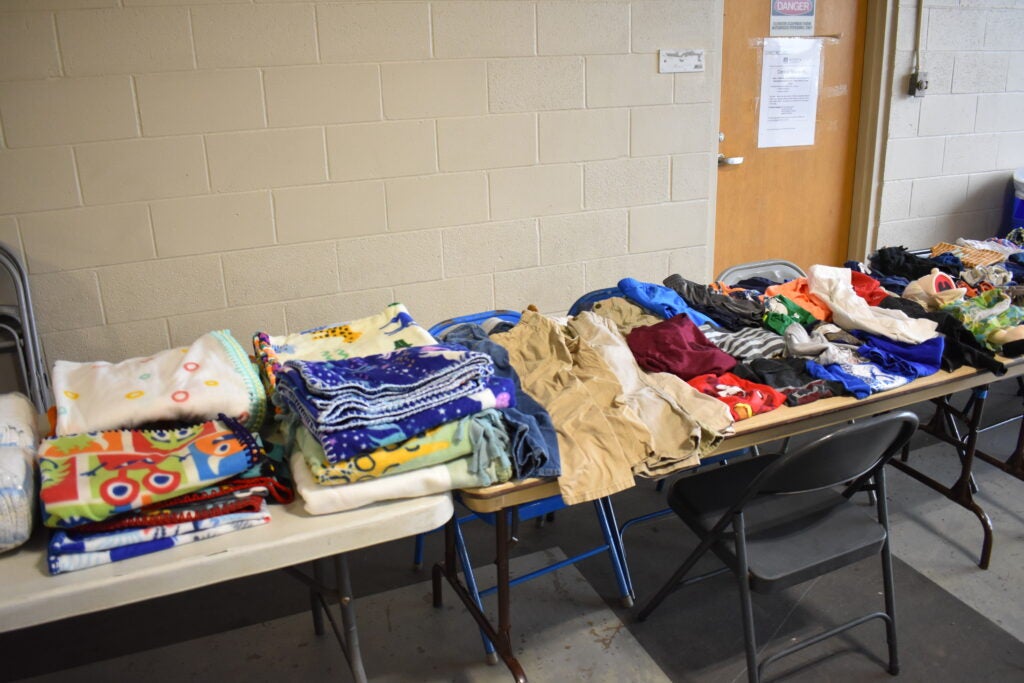
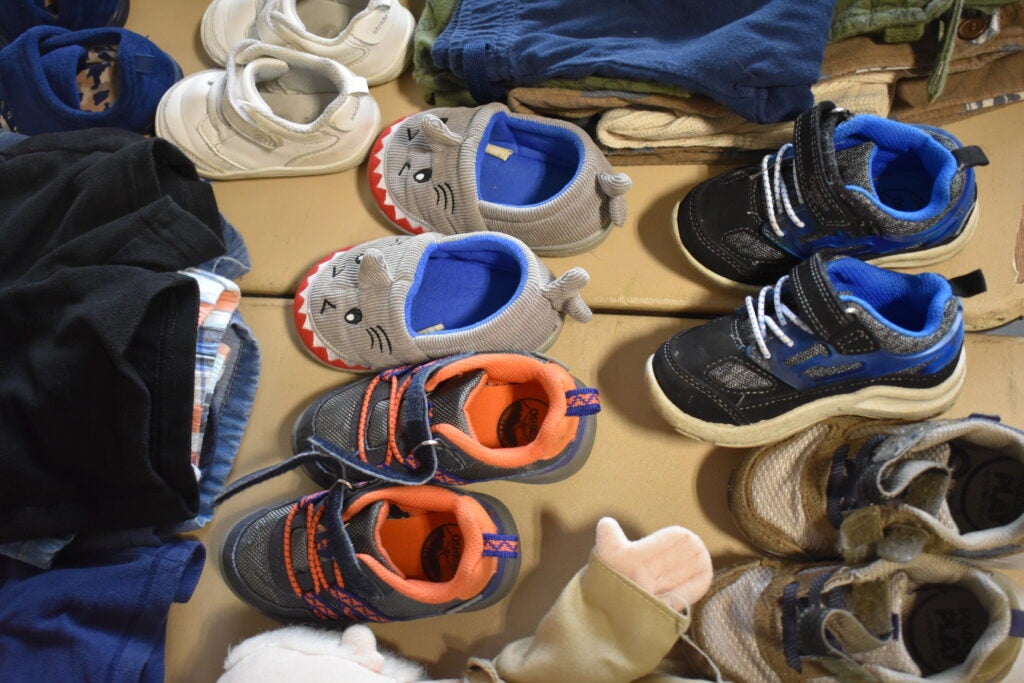
“Grandparents are taken for granted, and people don’t see everything that goes on behind the scenes,” he said. “There’s so much stress, trauma and anxiety that these grandparents have to deal with. It’s hard … grandparents are left to pick up the pieces and they are having to be counselors, therapists, nurses, tutors, teachers and more.”
By answering questions about medicine, nutrition and other concerns, Patton said he wants each attending older adult to begin prioritizing their own health needs as well – at least for one day out of the year.
“They are the most important piece of this puzzle, but because they’re so laser-focused on the kids, they put themselves last every time, ” he said. “But if we don’t have healthy grandparents, we’re not going to have healthy grandchildren.”
In addition to providing health screenings and socialization opportunities for the grandparents, Patton said the clinic and the program was also important because it communicates to members that they are appreciated, valued and needed by the community, as they can sometimes feel very isolated and lonely, especially during summertime.
“For a lot of grandparents, by the time they come to us, they have almost given up in looking for support and answers, and things like this mean the world to them,” he said. “When they get to see that there are people who care, there are people who see their sacrifice, it means a lot.”
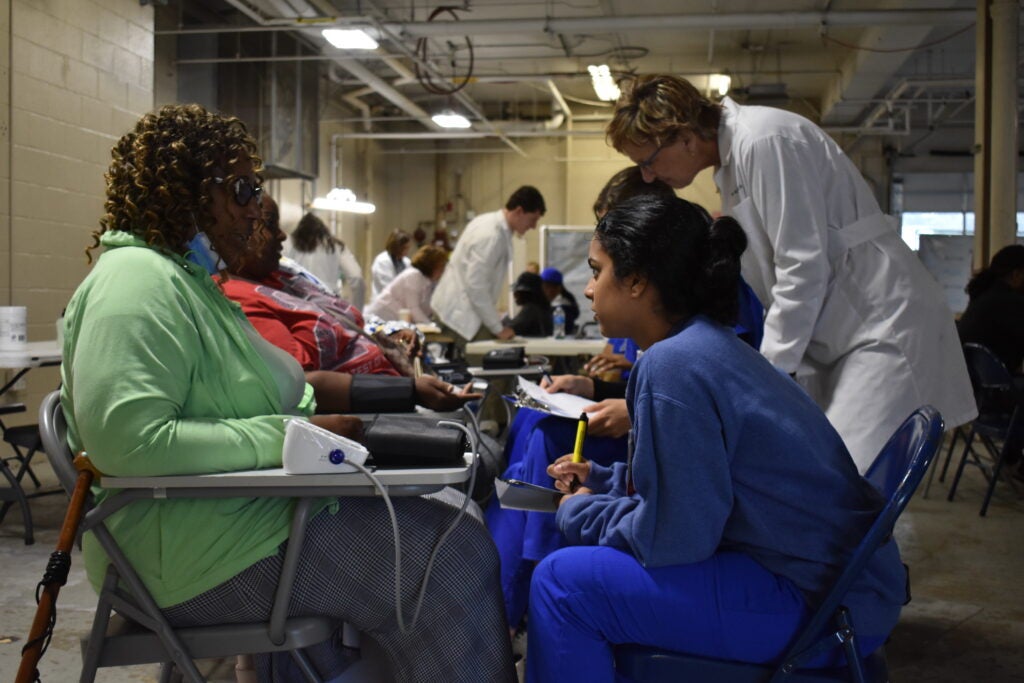
For participating AU senior nursing student Joanna Boban said she enjoyed helping her community by getting to know local grandparents.
“Doing this clinic allows us to catch those that don’t go to the doctor every year or don’t have the means to catch this stuff, so it kind of allows us to make sure they can stay healthy for as long as possible,” she said. “I was a little surprised that there are so many people who had to take in their grandchildren … I love being able to help them. It brings a lot of joy to my heart.”
Grandparent and veteran Steven Butler, who has raised both of his grandchildren since they were “babies,” said he thought the health clinic was “great” and felt that every team treated him well.
“It felt like everybody cared,” Butler said. “Everybody was friendly … to me, it’s mighty that these people would go the extra mile to reach out with their love to try and point out these [health concerns] to us.”
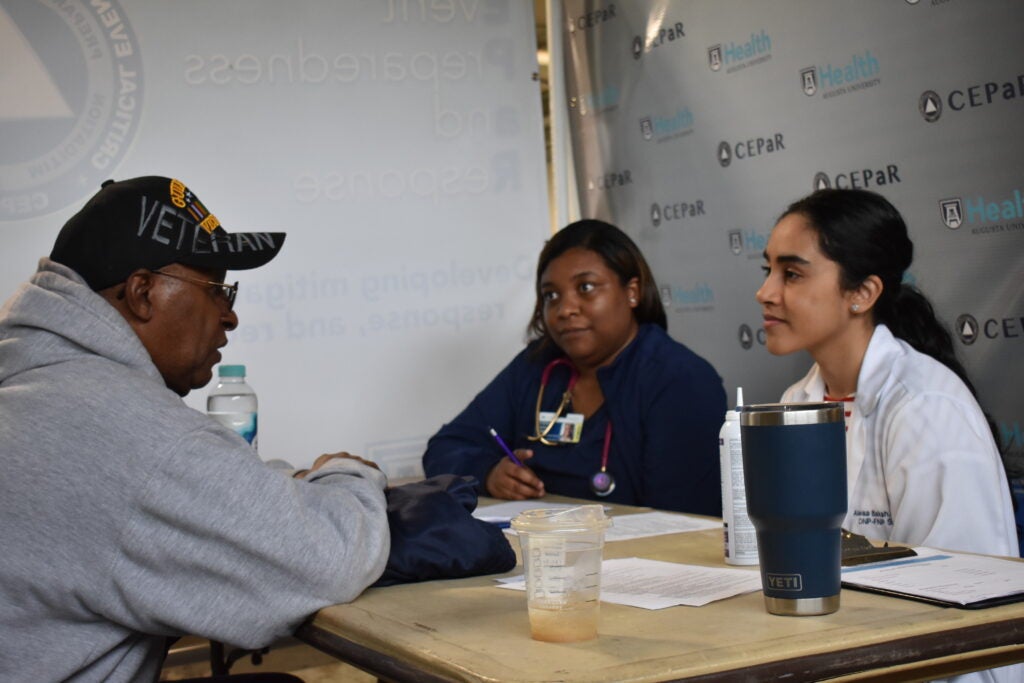
Butler also said he had fun conversing with many of the healthcare students and other grandparents while they laughed and answered health questionnaires.
“The Grandparent program is phenomenal and [Patton] is amazing,” Butler said. “I’ve met a lot of people, but I’ve never met a guy that loved everybody at the same time and did so continuously.”
But, for Butler, the biggest comfort the program offers is connecting grandparents together, because it allows many of them to share similar experiences and “vent.”
For more information about Augusta University’s Healthy Grandparents Program, visit: https://www.augusta.edu/nursing/hgp.php

